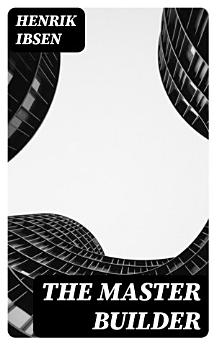The Master Builder
Henrik Ibsen
Sep 2022 · DigiCat
Ebook
71
Pages
family_home
Eligible
info
reportRatings and reviews aren’t verified Learn More
About this ebook
Henrik Ibsen's "The Master Builder" delves into the complex interplay between ambition, artistic vision, and personal relationships. Written in the late 19th century, this play showcases Ibsen's hallmark style of realism, characterized by its psychological depth and intricate character development. The narrative unfolds around Halvard Solness, a master builder tormented by his past achievements and future aspirations, embodying the existential dilemmas of modernity. The symbolic architecture within the play serves as a metaphor for Solness's aspirations and the precarious nature of success, offering a poignant examination of the human condition. Henrik Ibsen, often regarded as the father of modern drama, drew inspiration from his own life experiences as a playwright and social critic. His background in a struggling merchant family and his struggles with societal expectations profoundly influenced his exploration of individualism and the constraints imposed by society. Ibsen's encounter with artistic and economic challenges in his early life permeates the character of Solness, revealing the tension between creative ambition and personal vulnerability. "The Master Builder" is a seminal work that invites readers to reflect on the nature of success and the costs incurred in its pursuit. Ibsen's masterful storytelling and rich thematic layers make this play an essential read for those interested in literature that probes the complexities of human ambition. The layered characters and philosophical inquiries will resonate deeply with modern audiences, making it a timeless exploration of the creative spirit.
About the author
Henrik Ibsen, born on March 20, 1828, in Skien, Norway, is considered one of the foremost playwrights of the late 19th century. With a career spanning almost 50 years, he transformed the European stage tradition with his realistic prose dramas. Ibsen studied at the Norwegian Theatre School and began writing plays that challenged the moral values of his time. His innovative approach involved complex characters and examined the realities of society, earning him the nickname 'the father of modern drama.' One of his significant works, 'The Master Builder' (1892), encapsulates Ibsen's symbolism and psychological depth. The narrative revolves around an architect, grappling with the intricacies of ambition, and reflects themes prevalent throughout Ibsen's literary corpus such as individual struggle and the pursuit of truth. Ibsen's style indicates a departure from romanticism as he veers towards a more critical and realistic depiction of life. His influence extends to the works of prominent playwrights, including George Bernard Shaw and Arthur Miller. Henrik Ibsen's contributions to literature were revolutionary, with an enduring legacy that persists in contemporary theater and drama studies.
Rate this ebook
Tell us what you think.
Reading information
Smartphones and tablets
Install the Google Play Books app for Android and iPad/iPhone. It syncs automatically with your account and allows you to read online or offline wherever you are.
Laptops and computers
You can listen to audiobooks purchased on Google Play using your computer's web browser.
eReaders and other devices
To read on e-ink devices like Kobo eReaders, you'll need to download a file and transfer it to your device. Follow the detailed Help Center instructions to transfer the files to supported eReaders.







